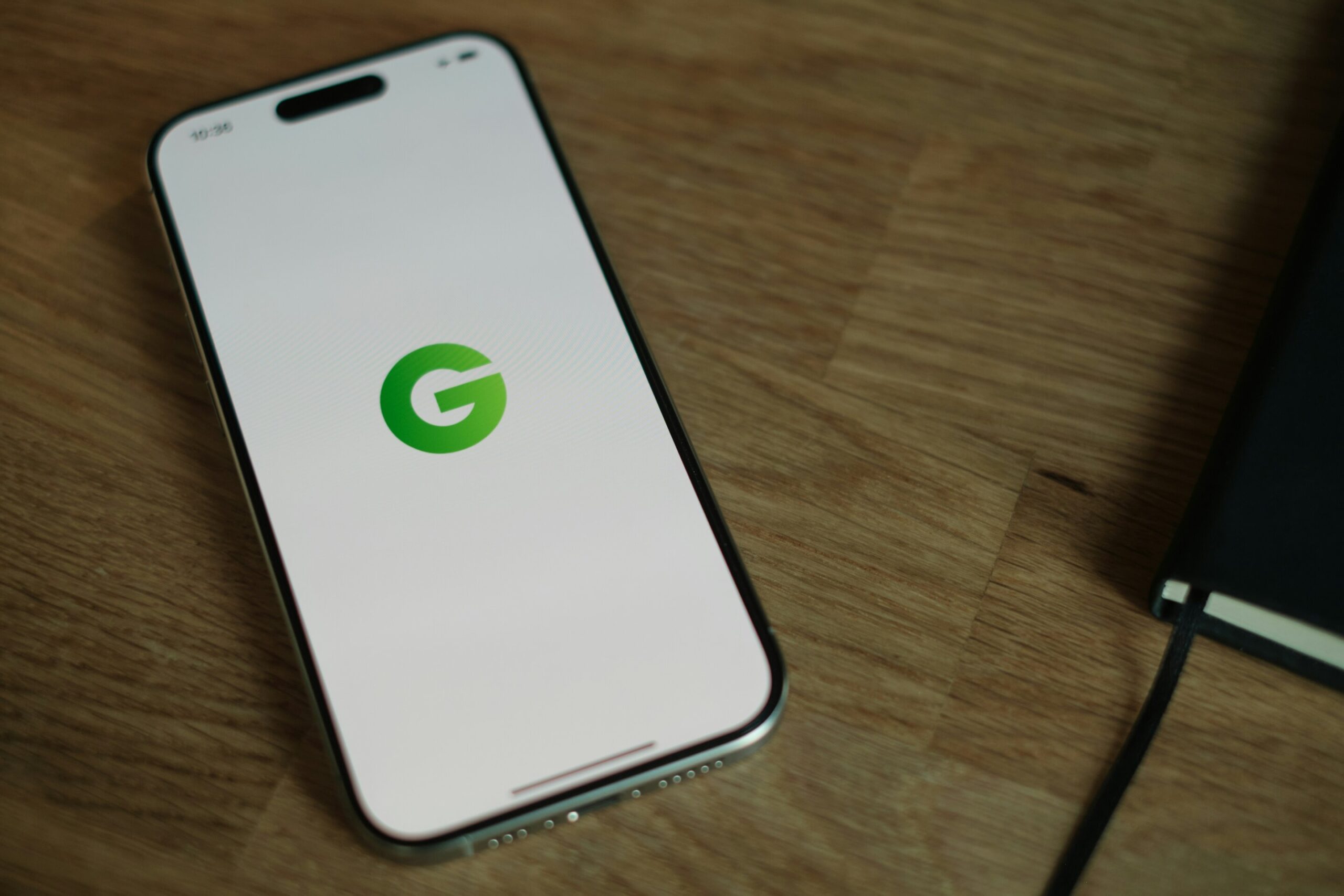Tech
Chicago tech entrepreneur Eric Lefkofsky has launched six unicorns, building a legacy far beyond Groupon

Since the dawn of the new millennium, there have been at most several thousand startup tech companies across the U.S. that have achieved unicorn status—crossing the $1 billion valuation.
Eric Lefkofsky, 55, the Chicago-based serial entrepreneur best known for co-founding online daily deals site Groupon, has given rise to six of them, evolving from discount coupons for pedicures to potentially lifesaving cancer treatments using artificial intelligence.
For most Chicagoans, however, the soft-spoken Lefkofsky remains something less than a household name, a billionaire entrepreneur whose brand is not emblazoned on a skyscraper, despite helping to put the city on the tech world map.
“He’s been a huge force in Chicago,” said Howard Tullman, a Chicago venture capitalist and the former CEO of 1871, the city’s influential tech hub. “This is not a guy who spent a lot of time chasing recognition, and he’s been a little bit below the radar. And I think that’s really particularly admirable.”
While unicorns are far more plentiful now than when venture capitalist Aileen Lee coined the mythical appellation in 2013, Lefkofsky remains a rarity in Chicago tech circles and beyond, launching and nurturing a diverse portfolio of big ideas brought to life.
For much of Lefkofsky’s remarkable run, the startups have been developed at 600 W. Chicago Ave., the century-old former Montgomery Ward Catalog building, which became known colloquially as the Groupon building with the stratospheric rise of the e-commerce website.
At one point, Lefkofsky’s various ventures occupied more than three-fourths of the massive 1.65 million-square-foot building in the Goose Island neighborhood along the Chicago River.
Founded in 2008, Groupon, which once spurned a $6 billion takeover offer from Google on its way to a $25 billion valuation, has fallen in recent years to a fraction of its previous worth amid sharp revenue declines. In January 2024, a downsizing Groupon moved to smaller digs downtown, leaving a 300,000-square-foot hole in the onetime nexus of the Chicago tech scene.
Once its largest shareholder with a 40% stake, Lefkofsky stepped down from an active leadership role at Groupon in 2015 and has since pared his holdings to just under 10%.
But Lefkofsky is still hard at work inside the building where the online daily deals site was born, fully invested in developing the next big thing.
Besides Groupon, the list of billion-dollar startups founded by Lefkofsky includes InnerWorkings, Echo, Mediaocean and Pathos AI. In recent years, most of his time, money and energy have been focused on Tempus, an AI-powered health care technology company he founded in 2015 to treat cancer and other diseases.
Lefkofsky serves as CEO of Tempus, a publicly traded company with 4,000 employees, offices and labs across the country and a market cap of more than $13 billion. More than any other company in his portfolio, the mission is personal to Lefkofsky, who started Tempus after his wife was diagnosed with breast cancer.
“In the process of her treatment, I ended up deciding that I really wanted to focus on this space, and spend the rest of my career thinking about cancer, how to bring technology to cancer care,” Lefkofsky said during a recent visit to Tempus headquarters, a bustling office and laboratory space that occupies 217,000 square feet of the former Montgomery Ward/Groupon building.
More than 1,000 employees circumnavigate the bustling fifth floor Tempus office around an atrium that Lefkofsky said was a spiral parking ramp before the building—a National Historic Landmark that once housed the country’s oldest mail-order firm—was converted to tech space 25 years ago.
The Tempus workforce is a melange of techies, scientists, oncologists and pathologists, all blended together with the same goal: using AI to better treat cancer.
“What’s unique about Chicago is that we have a little bit of everything,” Lefkofsky said, navigating seamlessly between the worlds of technology and science on a tour of his sprawling office.
There are two main areas of focus for Tempus.
In the life sciences realm, the company is analyzing molecular and clinical data with the help of artificial intelligence to facilitate drug research and development. Tempus is also pioneering new technology such as biological modeling, where “mini-tumors” are regrown from lab samples to test the efficacy of drugs.
The other half of the business for Tempus is clinical genomic sequencing, where tissue from cancer patients is shipped into the lab from all over the U.S. and analyzed using artificial intelligence to personalize treatment based on molecular biomarkers.
Half of the nation’s 14,000 or so oncologists regularly order sequencing tests from Tempus, Lefkofsky said. Tempus is one of the largest genomic sequencing companies in the country, helping doctors identify mutations to inform cancer treatment decisions, he said.
“When we started Tempus 10 years ago, maybe 10% of the patients were sequenced,” he said. “Today it’s over 50% in the United States, and soon it will be 100%. It’s just standard care.”
Lefkofsky has poured $100 million into Tempus, which has yet to turn a profit. He is confident that is about to change.
Tempus reported nearly 90% year-over-year revenue growth during its second quarter earnings report Aug. 8, raising its full-year 2025 revenue guidance to $1.26 billion. The company, whose stock price has more than doubled this year, is projecting a positive adjusted EBITDA of $5 million for 2025.
Beyond seed money, growing Tempus from a startup to a $13 billion company has also required a lot of sweat equity from Lefkofsky.
“It was not a small amount of money that I ended up putting into a series of rounds,” he said. “But more than the capital, it’s been kind of all-consuming for the last 10 years of my life.”
He was pretty busy before Tempus as well.
In addition to the six unicorns, Lefkofsky co-founded venture capital firm Lightbank. His startup success has made him the 643rd richest person in the world with a net worth of $5.9 billion, according to the Forbes real-time billionaires list.
A Detroit native, Lefkofsky earned a bachelor’s and a law degree at the University of Michigan before making his mark on the Chicago tech scene.
In the wake of the dot.com bubble burst, Lefkofsky launched a string of startups, beginning with InnerWorkings, a printing technology company he founded in 2001. Two years later, Lefkofsky moved InnerWorkings into 600 W. Chicago, the hulking former warehouse that had been recently redeveloped as a tech center.
“When I came to the building, it was about 90% vacant—and most of these floors were concrete for parking,” Lefkofsky said. “There were maybe one or two built floors and they were maybe half built, and we took some space with InnerWorkings.”
With plenty of room to grow, Lefkofsky and his portfolio soon did.
In 2005, he co-founded Echo Global Logistics with longtime business partner Brad Keywell, using technology to drive freight transportation. The company went public in 2009, growing into a multibillion-dollar logistics giant.
Next up, Lefkofsky and Keywell founded MediaBank in 2006, an advertising technology startup that evolved into Mediaocean through a 2012 merger with a New York-based rival.
Then came Groupon, an e-commerce launch that has become almost mythic in its arc.
In 2007, Andrew Mason, then a recent Northwestern University music grad, started a website called The Point with $1 million in seed money from Lefkofsky. The initial concept was to bring together people with a common cause to take action, but the mission soon pivoted to a daily deals retailing site, and Groupon was born.
Groupon created its own e-commerce niche with heavily discounted daily deals on everything from manicures to meals, blasted out to subscribers via email. It exploded in popularity and employment grew from a handful to more than 10,000 worldwide as the company’s valuation blossomed into the billions.
Google tried to purchase Groupon for nearly $6 billion in 2010, but Mason and his investors said no deal. By 2011, Groupon was valued at $25 billion, and the company went public, raising $700 million in the largest tech initial public offering since Google.
From an investor standpoint, it has been mostly downhill from there.
Operating losses, management missteps—including a disastrous 2011 Super Bowl ad— and a rapid post-IPO decline in valuation led to the 2013 ouster of Mason as CEO.
In August 2013, Lefkofsky was named CEO of Groupon. But one year into his new role, Lefkofsky’s life changed when his wife, Liz, was diagnosed with breast cancer. By 2015, he stepped down as CEO at Groupon and started Tempus.
Ten years later, Lefkofsky said his wife is “doing well” and Tempus is thriving at the intersection of technology and medicine.
In this case, necessity was both the mother of invention—and their three children.
“The work we did to try to figure out how to treat her was actually personalized using data, and so it ended up producing a good outcome,” Lefkofsky said. “So in many ways, she was Patient One of Tempus.”
From the outset, Tempus employed artificial intelligence to analyze medical data—long before the term, and the technology, came into widespread use.
As the ability to use AI in health care at scale gains momentum, the opportunity for Tempus to become a standard diagnostic tool and an integral part of mainstream medicine continues to ramp up, Lefkofsky said.
“We’re helping tens of thousands of patients around the country manage their cancer care, and we’ve expanded it to other disease areas such as cardiology and neurology,” Lefkofsky said. “It’s just good to see a lot of the roots we planted take hold.”
Living up to his company’s name—tempus means time in Latin—Lefkofsky somehow manages to find enough time for a number of the city’s civic and cultural organizations.
Longtime Glencoe residents, Lefkofsky and his wife are actively engaged in philanthropic pursuits, establishing an eponymous family foundation in 2006. He has also served on a number of boards, including Steppenwolf Theater Company, Lurie Children’s Hospital and World Business Chicago.
“I think he’s been a tremendous entrepreneurial influence, and I think that he’s also been maybe even more impressive, frankly, on the philanthropic side,” Tullman said.
In November, the Art Institute named Lefkofsky as its new board chairman, putting the tech billionaire in charge of overseeing the museum, the school and an ambitious plan to usher in an era of new development at the historic South Michigan Avenue campus.
His new role came with some unexpected drama when the museum’s director, James Rondeau, returned from a voluntary leave in June following a board investigation into an incident where he removed his clothes and disrupted a United Airlines flight to Germany.
“As a board, we were thrilled to have him back and thrilled just to be moving forward,” Lefkofsky said.
Meanwhile, his day job may be entering a new phase as fledgling companies leave the nest and head off on their own—faster than new ones launch.
InnerWorkings, Echo and Mediaocean have all been acquired by private equity firms. Czech investor Dusan Senkypl, now the largest stakeholder in Groupon, took the helm of the struggling daily deals site and last year moved the company to a smaller space in the Leo Burnett Building on Wacker Drive as part of a larger cost-cutting initiative.
Pathos AI, a Chicago-based biotech startup Lefkofsky co-founded with Tempus COO Ryan Fukushima in 2020, gained unicorn status in March with a $365 million round of funding that brought its valuation to $1.6 billion. Its day-to-day management is vested in other hands.
Pathos, Echo and Tempus still call 600 W. Chicago Ave. home.
Lefkofsky continues to focus on building Tempus, which in late August announced the acquisition of Paige, an AI company specializing in digital pathology. The $81 million deal is mostly being paid with Tempus common stock.
With six unicorns under his belt, Lefkofsky is not ready to give up the CEO’s role at Tempus anytime soon.
“I think my focus over the next several years is just running Tempus and making sure that it delivers on its mission,” Lefkofsky said.
As to the prospects of starting unicorn No. 7 down the road, Lefkofsky didn’t rule it out.
“I don’t have any plans to start another company,” he said. “But every once in a while, you know, things come up and you get excited.”
2025 Chicago Tribune. Distributed by Tribune Content Agency, LLC.
Citation:
Chicago tech entrepreneur Eric Lefkofsky has launched six unicorns, building a legacy far beyond Groupon (2025, September 4)
retrieved 4 September 2025
from https://techxplore.com/news/2025-09-chicago-tech-entrepreneur-eric-lefkofsky.html
This document is subject to copyright. Apart from any fair dealing for the purpose of private study or research, no
part may be reproduced without the written permission. The content is provided for information purposes only.
Tech
Jimmy Wales Will Never Edit Donald Trump’s Wikipedia Page: He ‘Makes Me Insane’

Wikipedia’s Jimmy Wales has been called the last decent tech baron. It’s sounds like a flattering label, although one I usually associate more with yacht-dwelling meatheads who feed their herds of cattle homegrown macadamia nuts; the kind of person who can most recently be found wining and dining with the President of the United States and his coterie of MAGA sycophants.
Wales, on the other hand, keeps things relatively low-key. Even as the site he founded, Wikipedia, turns 25 years old this month, he seems more interested in fixing his home Wi-Fi than joining the tech elite’s performative power games. He has also spent the past few months promoting a new book, The Seven Rules of Trust, that uses Wikipedia’s overarching strategy and unlikely rise to articulate Wales’ playbook for fixing much of what’s broken in today’s deeply polarized and antagonistic society.
On this week’s episode of The Big Interview, Wales and I discussed what it means to build something used by billions of people that’s not optimized for growth at all costs. During our discussion he reflected on Wikipedia’s messy, human origins, the ways it’s been targeted by governments from Russia to Saudi Arabia, and the challenges of holding the line on neutrality in an online ecosystem hostile to the notion that facts even exist. We also talked about what threatens Wikipedia now, from AI to conspiracy-pilled billionaires, and why he’ll never edit an entry about Donald Trump. Read our full conversation below.
This interview has been edited for length and clarity.
KATIE DRUMMOND: Jimmy Wales, welcome to The Big Interview. Thank you so much for being here.
JIMMY WALES: Thanks for having me on.
We always start these conversations with a few quick questions, like a little warmup for your brain. Are you ready?
Yes.
What’s an internet rabbit hole you’ve fallen into most recently?
Home Assistant. I’ve just started using Home Assistant to run smart home devices, and there’s a huge community and thousands of things to read about and so on and so forth. So it’s what I’m obsessed with.
What is this community doing?
Troubleshooting. People are working on extensions to deal with every kind of thing in the world, and it’s amazing.
What’s a subject you never argue about online anymore?
I would say I don’t argue with anybody about trans issues. There’s absolutely no point in it. It’s too toxic. I never did argue about it, but I don’t even talk about it.
You’re just going to stay away.
Yeah, it’s too unpleasant.
What do you trust more: Wikipedia or ChatGPT?
Definitely Wikipedia.
I had to ask. What’s your favorite website or app that is not Wikipedia?
I really do like parts of Reddit. There’s some really great communities on Reddit, and great people. I lurk and read in the personal finance subreddit. There’s just a lot of really nice people there. I’m always amazed by it.
Reddit is really having a moment. I find that I spend a lot more time lurking in the Reddit app on my phone, because I would rather read thoughtful conversations than scroll on X.
That’s exactly it. It’s like a place with paragraphs.
And often really thoughtful people. What is the best thing about living in the UK versus the US?
Well, my family’s here. I always say this about the US: Tech is in Silicon Valley, and politics is in Washington, and movies and showbiz are in LA, and finance is in New York. But all those things are in London.
So if I lived in Silicon Valley, I would only have tech friends because that’s who lives there. Whereas in London, it’s much more comprehensive. All kinds of people. So I like that.
Tech
Openreach puts a stop to copper for another million UK premises | Computer Weekly

The latest step in its parent company’s plan to move customers off the public switched telephone network (PSTN) and upgrade to new digital services has seen Openreach reveal 132 UK exchange locations, covering 1.23 million premises, where the business aims to halt the sale of traditional copper-based phone and broadband services.
The BT-owned broadband company has regarded the shift from copper to full-fibre networks as “every bit as significant as the move from analogue to digital and black and white TV to colour”.
The programme was first mooted in 2019, with legacy network skills and parts increasingly difficult to come by, and with digital services – such as voice over IP (VoIP), video conferencing and other apps – becoming more popular and effective. By retiring analogue phone lines, Openreach said it would create a simplified network to meet the enhanced needs of an increasingly digital society.
In practical terms, BT is in the process of transitioning more than 14 million traditional lines across the UK onto digital services to realise its plan on a national basis. The stop sell process is triggered when a majority (75%) of premises connected to a particular BT comms exchange can get a full-fibre connection.
Customers who then want to switch, upgrade or regrade their broadband or phone service will have to take a new digital service over Openreach’s full-fibre network. People and business using these exchanges not yet able to get full-fibre at their premises won’t be affected and can stay on their existing copper-based service until full fibre becomes available.
Following the decision to shut down the PSTN, it was agreed to test processes for migrating customers to fibre services and, ultimately, withdraw legacy copper services and the wholesale line rental products that rely on them. Openreach is giving communications providers – such as BT, Sky, TalkTalk and Vodafone, which all use its network – a year’s notice that it will no longer be selling legacy analogue products and services in these circumstances.
Despite the general progress in the programme, in May 2024, BT Group revised its timetable for moving all customers off the PSTN from its original date of the end of 2025 to January 2027. The new deadline followed a series of improvements to the programme that BT assured would better protect vulnerable customers and those with additional needs, including telecare users. BT added that its revised approach will result in a single switch for the majority of customers – both businesses and consumers.
By mid-February 2026, stop sell rules will have been activated in 1,281 exchanges across the UK, representing around 12.5 million premises where Openreach full-fibre is available to a majority of premises and copper products cannot be sold, 51% of the company’s total full-fibre footprint.
The Openreach full-fibre network is currently available to 21 million premises, around 60%, and the provider is aiming for 25 million connections by the end of 2026 and 30 million by 2030, subject to the right regulatory conditions.
Commenting on the latest step in the programme, James Lilley, Openreach’s managed customer migrations director, said: “Our stop sell programme is a vital step in accelerating the UK’s transition to a modern full-fibre future. As copper’s ability to support modern communications declines, the immediate focus is getting people onto newer, future-proofed technologies.
“By phasing out legacy copper-based services in areas where fibre is now widely available, we’re ensuring customers and providers move onto faster, more reliable digital infrastructure. This approach not only reduces the cost and complexity of having to maintain both old and new networks, but also supports the industry-wide migration ahead of the legacy copper-based PSTN now just over 12 months away, by which time everyone will need a digital phone line.”
Tech
Are DJI Drones Still Banned?

As of December 23, 2025, the US Federal Communications Commission barred Chinese-based drone maker DJI from importing any new drones into the United State. That might sound like you can’t buy a DJI drone right now, but that’s not true. Head over to Amazon and just about the whole DJI drone lineup is still for sale. So what gives? Are they banned or not?
The key word in the previous paragraph was any new drone. Nothing DJI has made in the past is banned. No one is taking your drone away. It’s still perfectly legal to fly a drone. And this isn’t just a DJI ban. It’s a ban on foreign-made drones, which includes those from companies such as DJI, Autel Robotics, HoverAir, and thers. That DJI is singled out in headlines has more to do with its market dominance than the way the rules are written.
I’d like to say that with the biggest competitor essentially removed from the market that US-based companies are swooping in with new drones. Actually we did say that once about Skydio, and we even liked the Skydio drone we tested, but since then Skydio has shifted away from the consumer market.
No New Drones
Courtesy of DJI
While it’s good news that the old stuff is still for sale, it’s unlikely that any new drones will arrive.
In order to sell in the United States, anything that uses radio frequency components has to be approved by the FCC. Drones use radio frequencies when flying, so they fall under FCC jurisdiction. Because none of the drone companies have had the security review they need by an approved US agency, they have all been placed on what’s called the Covered List. Companies on the Covered List do not have approval to import products into the US, effectively banning them.
There’s some evidence that wheels are turning somewhere, in a way that could spell good news for consumer drone flyers. Last week, the FCC amended its Covered List to exempt drones and components already approved by the Defense Contract Management Agency’s Blue UAS list. The FCC says in its public statement, “The DoW has determined that UAS and UAS critical components included on Defense Contract Management Agency’s (DCMA’s) Blue UAS list do not currently present unacceptable risks to the national security of the United States or to the safety and security of US persons.”
For the most part, this doesn’t really impact consumer drones, unless you were in the market for a $13.6k Parrot Anafi USA Gov edition thermal drone, but it’s better than silence, which has been the primary thing we’ve heard leading up to the December ban.
-

 Tech1 week ago
Tech1 week agoNew Proposed Legislation Would Let Self-Driving Cars Operate in New York State
-

 Entertainment7 days ago
Entertainment7 days agoX (formerly Twitter) recovers after brief global outage affects thousands
-

 Sports5 days ago
Sports5 days agoPak-Australia T20 series tickets sale to begin tomorrow – SUCH TV
-

 Fashion3 days ago
Fashion3 days agoBangladesh, Nepal agree to fast-track proposed PTA
-

 Business4 days ago
Business4 days agoTrump’s proposed ban on buying single-family homes introduces uncertainty for family offices
-

 Politics3 days ago
Politics3 days agoSaudi King Salman leaves hospital after medical tests
-

 Tech5 days ago
Tech5 days agoMeta’s Layoffs Leave Supernatural Fitness Users in Mourning
-

 Tech6 days ago
Tech6 days agoTwo Thinking Machines Lab Cofounders Are Leaving to Rejoin OpenAI


















